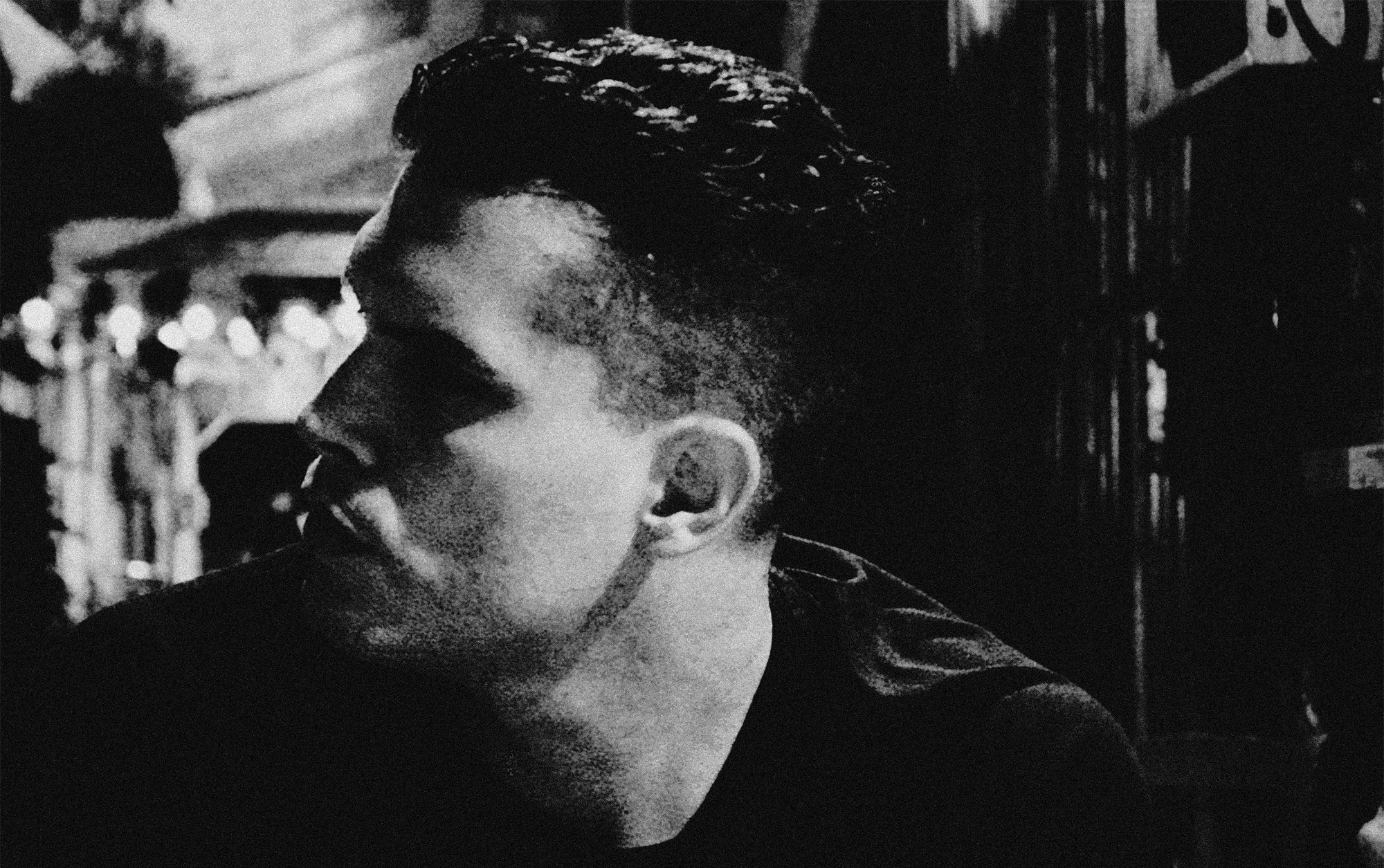Martel chats new LP, Zaire...
In his latest project Zaire, Montenegro-based producer and architect transforms the dancefloor into a site of political reflection and sonic excavation. Drawing inspiration from Marlon Brando’s haunting monologue in Apocalypse Now and Joseph Conrad’s Heart of Darkness, Martel delves into the Congo rainforest — not as an exotic muse, but as a symbol of empire, endurance and human complexity.
Part architectural in structure and fiercely human in intent, Zaire is a work of patience, tension and purpose — a sonic architecture of history, memory and rebellion. We caught up with him recently to learn more...

What drew you to the Congo rainforest as the central soundscape for this project?
Marlon Brando’s monologue as Kurtz, who was inspired by Joseph Conrad’s Heart of Darkness, which in turn let me to learn about the Congo and end up with a fascination with the fact that empires still run the golden parts of the world.
You’ve described Zaire as an ‘audio-political meditation’. What role do you see sound playing in political storytelling?
The role is all-important. If the endless drone of major media spews lies on every topic known under the skies, then it is high time for some political empathy and information to start spreading through sound as well - and what better way than music?
How did your background as an architect influence your approach to building these dense, layered tracks?
Patience, style, context, form, intent. Pivotally, architecture can teach you to listen in better ways than music can. Constructionwise, it translates into improvising with sound quite well and makes sure that emotion and manner are not tainted by cliches and a lack of quality.
The project rejects polished Afro-house aesthetics. Was there a moment when you felt compelled to take a different path from that scene?
I saw a random DJ a few years ago claim that Africa influenced him in many ways and that he is grateful for Africa’s impact on his sound and his understanding of music. The photo he captioned this with was of himself on a safari trip, and I just thought - imagine coming to England, hanging out with the bankboys in Mayfair and posting how you’re grateful that the experience has helped you understand Britain.
What about the taste of football, Motorhead and the warmth of neighbors of cold neighborhoods? The techno-pazazz of a Dagenham nanny or the mafioso yet dramatic intensity of a grungy Plaistow solicitor?
Well, those two observations somehow collided in my mind and I figured, if possible, it would be good to destroy the afro-house that is adored in Miami and for it to be replaced with 10 minute tribal raves that evoke the glory of collective love and intimacy felt at a circumcision ritual.

Many of the sounds feel excavated rather than composed. Can you talk us through your process of sourcing and shaping these field textures?
Field recordings, vinyl rips, experimentation with old equipment - the sourcing was not much of a hassle, but letting things breathe was. Most who gave me some early feedback expected more hooks and lines, but none of that, sorry - at least on this album, we will be diving into atmosphere and pain and then strength and vengefulness and hopefully, an appetite to better the world on the morrow!
What kinds of voices and recordings did you choose to sample, and why?
Voices of honesty, anger and fatigue. The reasons? Well, to jab at boring producers who still rely on uninspiring sample packs in 2025. I mean really, record your auntie as she talks about Christmas, speed it up, pitch it down, slap reverb and delay on separate channels there, automate it so it shifts from one effect to the other on the beat before the drop and - in essence, do something. Joey Diaz is a great mentor here. You gotta do something! And, now when it’s easier than ever to do exactly that, most producers and djs choose not to. Props and eternal love to the Don Quixotes who do!
Do you think club spaces are ready to hold music that carries the weight of history in the way Zaire does?
Yes, because club spaces are now also ready for obscene rent hikes from Buenos Aires to Berlin, and club spaces are also succumbing officially to the hypnosis of online trends and hyperaccommodative experiences. If clubs can perform such miracles, then I expect clubs to also be places of thought, compassion, politics, passion and fury. If they cannot do that, then we might as well just sell them all of to Walmart or Zara - at least then, they’ll be projecting experiences on their own terms.
How do you balance making tracks that work as hypnotic techno tools while also being politically charged?
Instinct. And also, loving Manu Chao. He gets to move people to guerrilla choruses while playing beach friendly chords that even football hooligans jump along to. There’s magic there, and I aim for the very same, only on an underground techno platform of listening.
The EP title references Zaire, a name tied to colonial and corporate histories. What meaning does that hold for you?
There’s a few meanings to me, but the one I will confess - it’s an ode to possibly the final blow of empire to try to not only cover things under a carpet, but to then give it an exotic name that should somehow divert people from the country’s realities. Zaire, Zaire… an expensive word.
How do you navigate the line between using sound as cultural reference and avoiding appropriation?
I don’t worry about that because I don’t do things for their sellable or coolness factor, but rather, for the sake and reality of them. If black culture is a bit of a boombap and a cornrow to some EMI upcoming vocal goddess, so be it, but to me - this album, Africa and the Congo specifically represents struggle, boldness, strength, endurance. When one witnesses these qualities in a raw form contextually, things happen out of respect and adoration, not imitation.
Can you share a moment during the recording process where the material itself surprised you?
Tears. I sent over a track to a mother of a dear friend of mine, and this decision was based on her sister’s work as a Red Cross specialist in warzones. I asked her for her opinion, and she, in dramatic Montenegrin fashion, proclaimed absolute commitment to the Congo and mentioned a great artist from the Congo. I looked him up - Tshibumba Kanda Matalu. I scroll and scroll and I cry. On top of knowing so many things about Congo’s struggle, I never heard of this man. Great art, moving, deliberate - yet childhood-invoking, naive, lovely even in its obscene darkness. Dug a bit around that, he’s disappeared for a while now and nobody knows why. The night I found the work however, tears and a long night at that…

What role does distortion play in your sound design and storytelling here?
Distortion is for the music and synths that sounded too rigid and vintage for my taste, but I like my stories clean so even if a lot of the album is grungy sonically in order to evoke a wonder for what has passed or for what is yet to come, the reality is actually Marco Pierre White and precise and deeply, deeply articulated.
Do you see Zaire as part of a wider conversation around decolonising dance music?
Sadly no. I design sound for the underground fanatic, and we are but the worms of meditation in a field of chickens who love Artbat. And mind you, I like a few of their songs but…
The atmosphere you create is stark and immersive. How do you want listeners to feel when they first hear the record?
I want them to feel like they’re somewhere else, and I want them to wonder where that even is, and I wish that that will be enough for them to do the rest as I did.
Has the process of making Zaire changed how you think about your practice as a composer?
Unexpectedly, yes, and quite dramatically. It’s perhaps the first time I no longer took potential listener impressions as important in comparison to figuring out the translation of a space or an experience that will trigger actual reactions as opposed to thought.
Which track on the EP feels most personal to you, and why?
Warlord. The monologue and a reality that has been compromised here in what he says, the pardon my french, fucking dryness of what a man as a nation, and a nation as man come to when brought so low is… the essence of the album to me. There’s the stench of the nothing-to-lose there but deeply, once all has been lost, losing anything is losing everything.
How did you approach rhythm and percussion differently compared to your past projects?
As a Balkan kid, I suffered from the westernised idea that Africa loves odd rhythms. It doesn’t. It seems we in the Balkans along with the Greeks after all, are the masters of complex polyrhythms. In India however, there dwell the Gods of this. But in practical terms, I just wanted to break away from the kick-clap-kick-clap system and rely on what I’ve heard during my travels. An element or two are offbeat, the rest is straight system, and biological at that.
What were you listening to, reading, or thinking about while creating this record?
I was reading about Lumumba, the CIA, Guevara, civil wars… I was infatuated with how the barbarity of the French and English languages have survived the frankish and anglosaxon days into becoming the greatest languages of today, yet how down in the bush, they are still the languages of barbarians, learned by force and necessity, never by will. I also lamented the Boleyn ground and the gentrification of my working class London havens and I was listening to Sepultura’s “Roots” and Flowdan quite a bit those days.
Do you see Zaire more as a record to be experienced in clubs, or in more reflective listening spaces?
Both. The clubs need thought to combat the nouveau riche and the old money class that now finds bare-brick and concrete cooler than fine furniture, but the reflective listeners also need something fresh.
What conversations do you hope this project sparks within the electronic music community?
Political or analog. A lot of conversations nowadays die in the vacuum of the ocean of everyone’s ego, and collective thought is almost impossible now as everyone is their own little dwarf-God in front of their little algorithms that permanently rotate a carousel of what they think they know back at them. If anyone even stops for a second to contemplate but a moment from this album, I pray they stop, think and feel.
Buy/listen to the release here
Keep up with Martel on Instagram
.svg)
